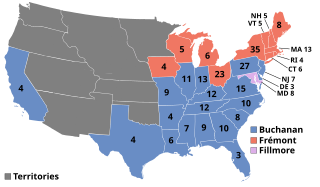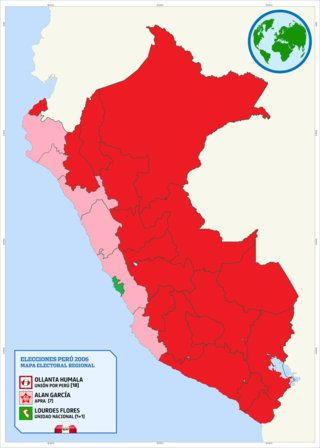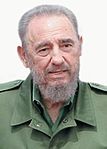Politics in Estonia takes place in a framework of a parliamentary representative democratic republic, whereby the Prime Minister of Estonia is the head of government, and of a multi-party system. Legislative power is vested in the Estonian parliament. Executive power is exercised by the government, which is led by the prime minister. The judiciary is independent of the executive and the legislature. Estonia is a member of the United Nations, the European Union, and NATO.

Ireland is a parliamentary, representative democratic republic and a member state of the European Union. While the head of state is the popularly elected President of Ireland, it is a largely ceremonial position, with real political power being vested in the Taoiseach, who is nominated by the Dáil and is the head of the government.

The 1992 United States presidential election was the 52nd quadrennial presidential election, held on Tuesday, November 3, 1992. Democratic Governor Bill Clinton of Arkansas defeated incumbent Republican President George H. W. Bush and independent businessman Ross Perot of Texas. The election marked the end of a period of Republican dominance in American presidential politics that began in 1968,, and also marked the end of 12 years of Republican rule of the White House, as well as the end of the Greatest Generation's 32-year American rule and the beginning of the baby boomers' 28-year dominance until 2020. It was the last time the incumbent president failed to win a second term until Donald Trump in 2020.

The 1856 United States presidential election was the 18th quadrennial presidential election, held on Tuesday, November 4, 1856. In a three-way election, Democrat James Buchanan defeated Republican nominee John C. Frémont and Know Nothing nominee Millard Fillmore. The main issue was the expansion of slavery as facilitated by the Kansas–Nebraska Act of 1854. Buchanan defeated President Franklin Pierce at the 1856 Democratic National Convention for the nomination. Pierce had become widely unpopular in the North because of his support for the pro-slavery faction in the ongoing civil war in territorial Kansas, and Buchanan, a former Secretary of State, had avoided the divisive debates over the Kansas–Nebraska Act by being in Europe as the Ambassador to the United Kingdom.

The 1860 United States presidential election was the 19th quadrennial presidential election, held on Tuesday, November 6, 1860. In a four-way contest, the Republican Party ticket of Abraham Lincoln and Hannibal Hamlin won a national popular plurality, a popular majority in the North where states already had abolished slavery, and a national electoral majority comprising only Northern electoral votes. Lincoln's election thus served as the main catalyst of the states that would become the Confederacy seceding from the Union. This marked the first time that a Republican was elected president. It was also the first presidential election in which both major party candidates were registered in the same home state; the others have been in 1904, 1920, 1940, 1944, and 2016.

Cuba has had a socialist political system since 1959 based on the "one state – one party" principle. Cuba is constitutionally defined as a Marxist–Leninist state. The present Constitution of Cuba, which was passed in a 2019 referendum, also describes the role of the Communist Party of Cuba to be the "leading force of society and of the state" and as having the capability of setting national policy, and First Secretary of the Communist Party is the most powerful position in Cuba. The 2019 Constitution of Cuba identifies the ideals represented by Cuban independence hero José Martí and revolutionary leader Fidel Castro as the primary foundation of Cuba's political system, while also stressing the importance of the influence of the ideas of Marx, Engels, and Lenin.

On the federal level, Russia elects a president as head of state and a parliament, one of the two chambers of the Federal Assembly. The president is elected for, at most, two consecutive six-year terms by the people. The Federal Assembly has two chambers. The State Duma has 450 members, elected for five-year terms. The Federation Council is not directly elected; each of the 85 federal subjects of Russia sends 2 delegates to the Federal Council, for a total of 170 members.
The Liberal Party was a parliamentary party in Australian federal politics between 1909 and 1917. The party was founded under Alfred Deakin's leadership as a merger of the Protectionist Party and Anti-Socialist Party, an event known as the Fusion.
Regular elections in Croatia are mandated by the Constitution and legislation enacted by Parliament. The presidency, Parliament, county prefects and assemblies, city and town mayors, and city and municipal councils are all elective offices. Since 1990, seven presidential elections have been held. During the same period, ten parliamentary elections were also held. In addition, there were nine nationwide local elections. Croatia has also held three elections to elect members of the European Parliament following its accession to the EU on 1 July 2013.

The 2004 United States presidential election was the 55th quadrennial presidential election, held on Tuesday, November 2, 2004. The Republican ticket of incumbent President George W. Bush and his running mate incumbent Vice President Dick Cheney were elected to a second term, defeating the Democratic ticket of John Kerry, a United States senator from Massachusetts and his running mate John Edwards, a United States senator from North Carolina. As of 2020, this is the only presidential election since 1988 in which the Republican nominee won the popular vote and the only presidential election since 1984 in which the incumbent Republican president won re-election. Due to the higher turnout, both major party nominees set records for the most popular votes received by a major party candidate for president; both men surpassed Reagan's record from 20 years earlier. At the time, Bush's 62,040,610 votes were the most received by any nominee for president, although this record would be broken four years later by Barack Obama. Bush also became the only incumbent president to win re-election after previously losing the popular vote. He was the second sitting President in a row to win a second term. Bush won 4 states in 2004 that have not voted Republican since: Virginia, Colorado, Nevada and New Mexico. In contrast, this is the last election that the losing candidate won any of the following states: Michigan, Pennsylvania, and Wisconsin.

Elections in Cuba are held at municipal, provincial, and national levels. Cuba is a one-party state, with the Communist Party of Cuba being described as the "superior driving force of the society and the state" in the Constitution of Cuba, and the communist party is the only official political party. Elections in Cuba are not considered democratic because the government does not allow free and fair voting.

Elections in Jordan are for the lower house, known as the House of Representatives, of the bicameral parliament of Jordan, as well as for local elections. They take place within a political system where the King has extensive legislative and executive powers, retaining ultimate political control. The Prime Minister is selected by the King, the PM is then free to choose his own Cabinet. The parliament has quotas: three seats for Circassians and Chechens, nine for Christians and fifteen for women. The electoral system favours rural tribes and those of East Bank origin over urban areas that are primarily inhabited by those of Palestinian descent.

Elections in Lithuania are held to select members of the parliament, the president, members of the municipal councils and mayors, as well as delegates to the European Parliament. Lithuanian citizens can also vote in mandatory or consultative referendums.

Parliamentary elections were held in Zimbabwe on 31 March 2005 to elect members to the Zimbabwe House of Assembly. All of the 120 elected seats in the 150-seat House of Assembly were up for election. There were a further 20 members appointed by the President and ten elected by traditional chiefs, who mostly support the government. Electoral colleges for the election of the ten chiefs to the parliament were to be held on 8 April.

General elections were held in Peru in on 9 April 2006 to elect the President, two Vice-Presidents, 120 members of Congress and five members of the Andean Parliament for the 2006–2011 period. As the no presidential candidate received a majority of the vote, a second round was held on 4 June between the top two candidates, Ollanta Humala and Alan García. Garcia won the run-off with 52.63% to Humala's 47.37%. He was subsequently inaugurated on 28 July 2006, Peruvian Independence Day.

The National Assembly of People's Power is the supreme organ of power of the Republic of Cuba. It is the only branch of government in the state, and per the principle of unified power, all state organs are subservient to it. It is currently composed of 470 representatives who are elected from multi-member electoral districts for a term of five years called consejos populares. The current President of the Assembly is Esteban Lazo Hernández. The Assembly only meets twice a year, with the 31-member Council of State exercising legislative power throughout the rest of the year. The most recent elections were held on 26 March 2023. The number of deputies was reduced from 605 to 470 for the 2023 election.

Trade Unionist and Socialist Coalition (TUSC) is a socialist electoral alliance in Britain. It was originally launched for the 2010 general election.
A bloc party, sometimes called a satellite party, is a political party that is a constituent member of an electoral bloc. However, the term also has a more specific meaning, referring to non-ruling but legal political parties in a one-party state as auxiliary parties and members of a ruling coalition, differing such governments from pure one-party states such as Nazi Germany and the Soviet Union, although such minor parties rarely if ever constitute opposition parties or alternative sources of power. Other authoritarian regimes may also have multiple political parties which are nominally independent in order to give the appearance of political pluralism, but support or act in de facto cooperation with the government or ruling party.

Legislative elections were held in the Palestinian territories on 25 January 2006 in order to elect the second Palestinian Legislative Council (PLC), the legislature of the Palestinian National Authority (PNA). The result was a victory for the Islamist organization Hamas, contesting under the list name of Change and Reform, which received 44.45% of the vote and won 74 of the 132 seats, whilst the ruling Fatah received 41.43% of the vote and won 45 seats.

The 2021 Election Committee subsector elections were held on 19 September 2021 for elected seats of the 1,500 members of the Election Committee (EC) which is responsible for electing 40 of the 90 seats in the Legislative Council (LegCo) in the 2021 election and the Chief Executive of Hong Kong (CE) in the 2022 election.















